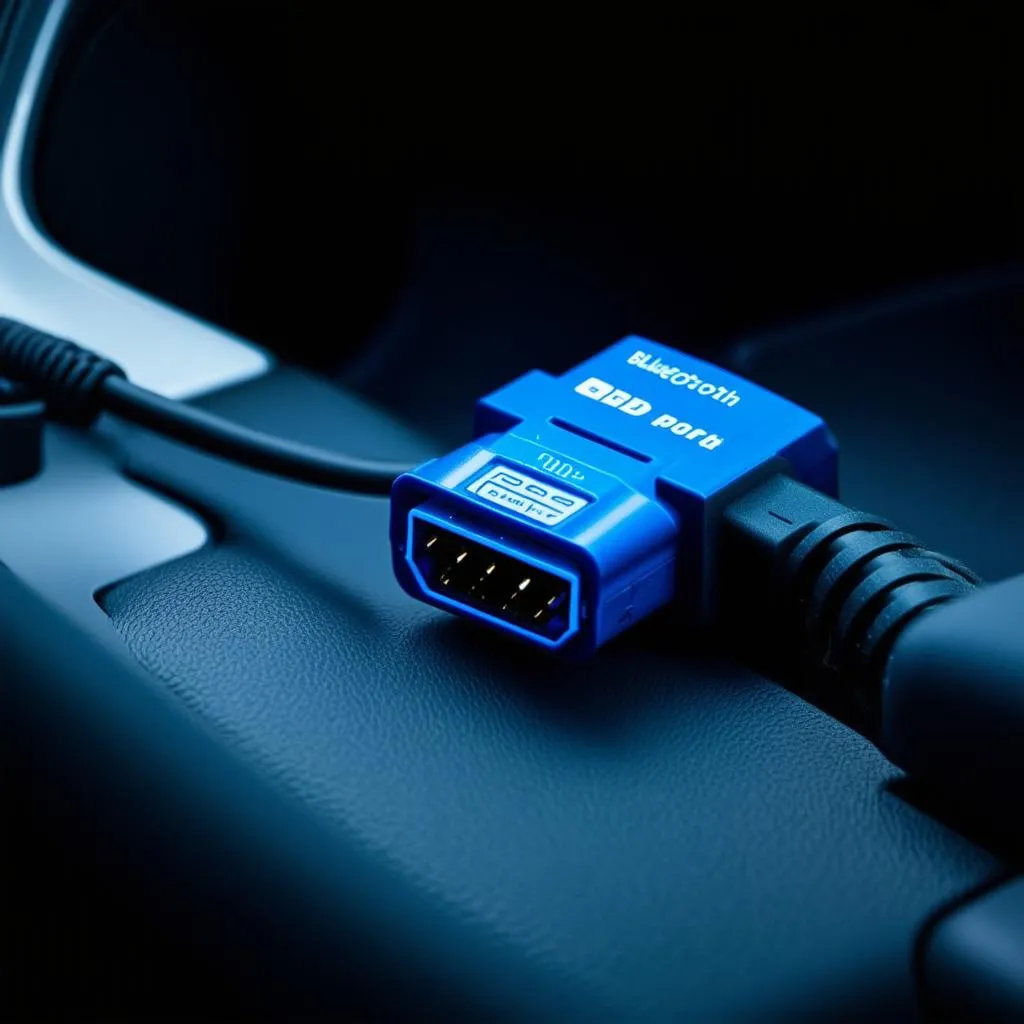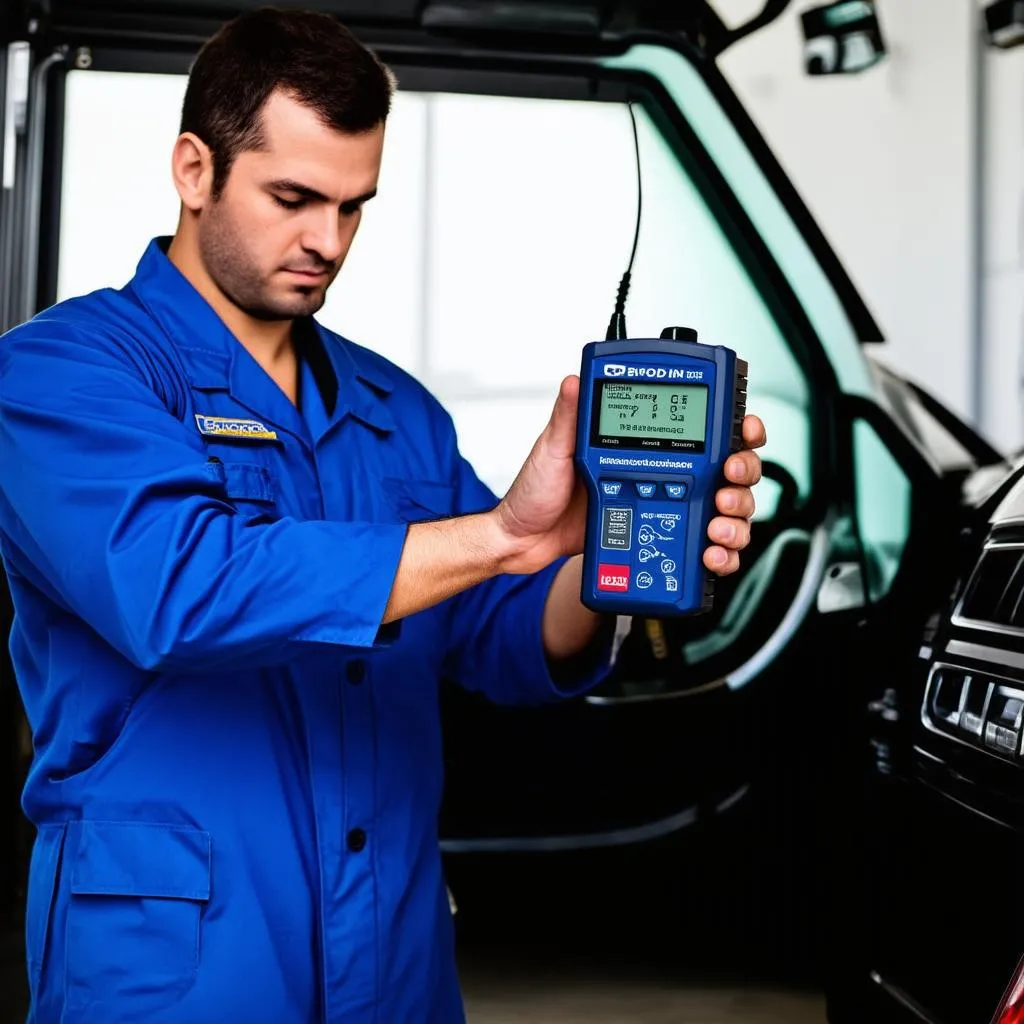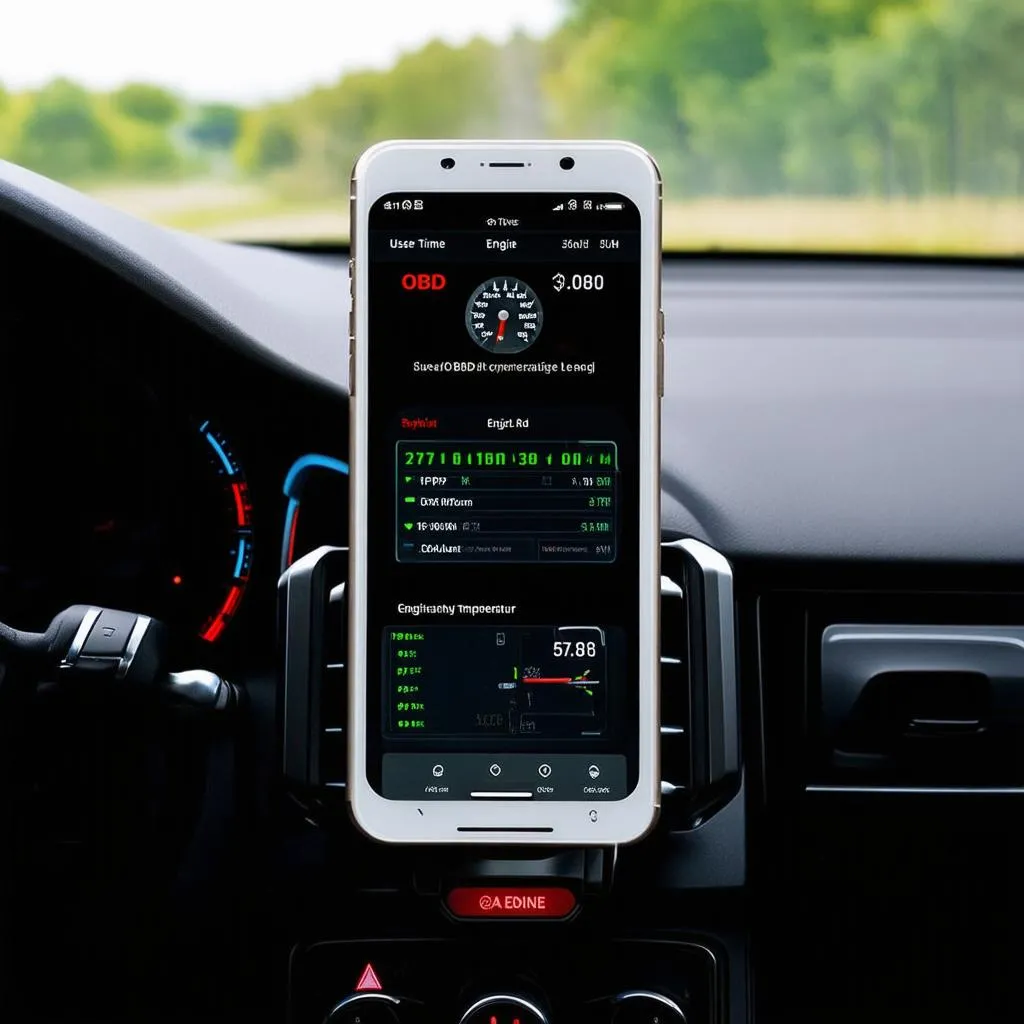Picture this: You’re about to embark on a road trip, cruising down the California coast in your trusty Ford Mustang. Suddenly, the check engine light pops up, flashing like a disco ball. You bought a fancy new Bluetooth OBD adapter to diagnose the issue yourself, but the darn thing won’t connect!
Don’t hit the panic button just yet. We’ve all been there, staring blankly at our phones while our cars seem to speak a language we don’t understand. This article is your comprehensive guide to understanding why your Bluetooth OBD adapter might be playing hard to get and how to fix it.
What Does “Bluetooth OBD Adapter Won’t Connect” Even Mean?
Before we dive into solutions, let’s break down the problem. Your car’s OBD-II port, usually located under the dashboard, is like its own little black box, storing diagnostic information. The Bluetooth OBD adapter acts as a translator, allowing your smartphone or tablet to communicate with your car’s computer.
From a Mechanic’s Perspective:
“I see this issue all the time,” says John Miller, a seasoned mechanic in Chicago. “People get excited about DIY car diagnostics, which is great, but then they hit this roadblock. It’s usually a simple fix, though.” He emphasizes that understanding the basics of how the adapter and your car’s system interact is key.
The Tech Talk:
Technically speaking, the issue boils down to establishing a successful Bluetooth connection and data transfer protocol between the adapter and your device. Any hiccup in this process, whether it’s pairing issues, incorrect settings, or compatibility problems, can lead to a frustrating “won’t connect” situation.
Why Won’t My Bluetooth OBD Adapter Connect?
Here’s the lowdown on the usual suspects behind your connectivity woes:
- Pairing Problems: Just like any other Bluetooth device, your adapter and phone/tablet need to be properly paired. This involves searching for available devices and confirming the connection on both ends.
- Bluetooth Version Mismatch: An older Bluetooth version on your phone or adapter can lead to compatibility problems.
- Incorrect App Settings: The OBD app you’re using might have specific settings that need to be configured for your adapter and car model.
- Faulty Adapter or Port: Sometimes the adapter itself might be faulty, or there could be an issue with your car’s OBD-II port.
- Interference: Other electronic devices or even the car’s own electronics can sometimes interfere with the Bluetooth signal.
Troubleshooting Your Bluetooth OBD Adapter Connection
Let’s get that adapter talking to your phone! Here’s a step-by-step troubleshooting guide:
-
Check the Obvious:
- Is Bluetooth enabled on both your device and adapter? Sounds silly, but it happens!
- Is your adapter plugged in properly? Make sure it’s securely seated in the OBD-II port.
- Is your phone/tablet close enough to the adapter? Bluetooth has a limited range.
-
Try Re-Pairing: Disconnect the adapter from your device’s Bluetooth settings and try pairing them again from scratch.
-
Consult Your Adapter’s Manual: Every adapter is different. Your manual will have specific instructions for pairing and troubleshooting.
-
Check App Settings: Make sure the OBD app you’re using is configured correctly for your adapter and vehicle.
-
Test with Another Device: If possible, try connecting the adapter to a different smartphone or tablet to rule out any device-specific issues.
-
Try a Different OBD-II Port: If your car has multiple OBD-II ports (some do!), try plugging the adapter into a different one.
-
Check for Software Updates: Make sure your phone’s operating system and the OBD app are up to date.
-
Restart Everything: Sometimes a good old-fashioned restart of your phone and adapter can work wonders.
Still No Luck? Don’t Throw in the Towel Just Yet!
If you’ve exhausted all troubleshooting steps, here are a few additional things to consider:
- Adapter Compatibility: Is your adapter compatible with your car’s make, model, and year? “Some adapters are specifically designed for certain car brands or protocols,” explains automotive electronics expert Sarah Jones, author of “The Connected Car.”
- OBD-II Port Issues: There might be a problem with your car’s OBD-II port itself. In this case, you might need to consult a mechanic.
- Consider a Professional-Grade Scanner: For more advanced diagnostics, a professional-grade OBD-II scanner might be a worthwhile investment, especially if you’re an avid DIY mechanic.
FAQs: Bluetooth OBD Adapter Connection Problems
Here are some frequently asked questions that might shed more light on your situation:
-
Why is my Bluetooth OBD adapter blinking red? This usually indicates that the adapter is powered but not connected to a device or the car’s ECU (Engine Control Unit).
-
Can I use any Bluetooth OBD adapter with my car? Not necessarily. Compatibility depends on your car’s make, model, year, and the protocols supported by the adapter.
-
Why is my Bluetooth OBD adapter draining my car battery? Some adapters might draw a small amount of power even when not in use. If you’re concerned, unplug the adapter when not using it.
Need More Help? We’re Here for You!
Diagnosing car troubles can be frustrating, especially when your tools aren’t cooperating. If you’re still struggling to connect your Bluetooth OBD adapter, don’t hesitate to reach out.
Contact us on Whatsapp at +84767531508 for expert assistance. Our team of automotive specialists is available 24/7 to help you get your diagnostic tools up and running!
Keep Your Engine Running Smoothly
Hopefully, this guide has helped you troubleshoot your Bluetooth OBD adapter connection woes. Remember, a little knowledge and patience go a long way when it comes to DIY car diagnostics. And if all else fails, don’t hesitate to call in the pros!
For more tips and tricks on car maintenance and repair, check out our other articles:
Now go forth and conquer those car troubles!
 Bluetooth OBD Adapter Plugged into Car's OBD-II Port
Bluetooth OBD Adapter Plugged into Car's OBD-II Port
 Mechanic Examining OBD-II Scanner in Garage
Mechanic Examining OBD-II Scanner in Garage
 Smartphone Displaying OBD App with Diagnostic Data
Smartphone Displaying OBD App with Diagnostic Data
